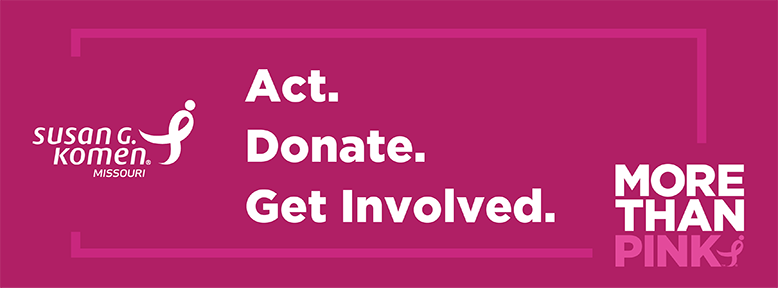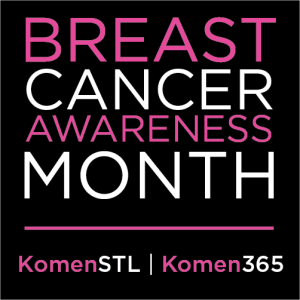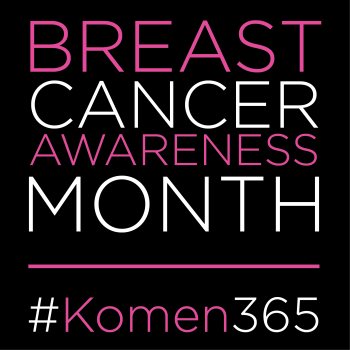
The Breast HealthCare Center at Missouri Baptist Medical Center continues to be a strong leader in its commitment to reach out to women in need.
“We are very fortunate to be able to assist women who have no insurance or those who are underinsured in St. Louis and surrounding communities,” says Theresa Taylor, Outreach Coordinator.
With Komen St. Louis funding, the Center provides increased access to breast screening services, as well as education, prevention and early detection of breast cancer by providing screening and diagnostic mammograms and ultrasounds to women ages 40-64.
Through the MBMC Breast HealthCare Center’s Reaching the Underserved program – which has been supported by a Komen St. Louis grant for 12 years – Missouri Baptist reaches out to many rural communities where women may not otherwise have access to a mammogram.
The program partners with local clinics and health departments, putting together educational events to bring in women and create a relaxed, fun day and comfortable atmosphere.
“Thanks to the Komen St. Louis grant, our digital mobile mammography van is able to travel into neighborhoods in many of the rural communities, reaching those in need,” says Theresa.
For those women whose mammograms show abnormalities, follow-up services are provided at the Breast HealthCare Center.
“What we often see is that when it comes to caring for their own health by having a mammogram, it’s typically the first thing many women do without,” says Theresa. “We are very fortunate to be able to provide this to them.”
The educational component is equally important, and the program works to share knowledge about the importance of early detection of breast cancer through screening. The program’s educational events are held in St. Louis City and St. Louis County along with 11 rural communities in the following Missouri counties: Jefferson, St. Francois, Warren, Ste. Genevieve, Perry, Lincoln, Madison, Washington, Franklin, St. Charles and Montgomery.
As a two-time breast cancer survivor with no family history of the disease, Theresa understands the importance of providing these services.
“I never imagined this would be something that would have impacted my life as it has,” she says. “I know first-hand how devastating this disease can be. In my role as the Outreach Coordinator, I find it very gratifying to be able to reach out and share my story in hopes it will convince as many women as possible to get screened or to get the help they need.”
The outreach efforts have particularly grown in the past two years. “Last year we provided over 800 women with services and we anticipate the same for this year,” Theresa says.
“I have first-hand knowledge of what our ladies are feeling when they are presented with a problem,” says Theresa. “I feel blessed and fortunate, with the help of our generous grant from Komen St. Louis, to help as many women as we can every year.”
In 2013, Komen St. Louis granted $2.2 million to 13 local breast health programs in our 17-county Missouri/Illinois service area, including Missouri Baptist Breast HealthCare Center’s Reaching the Underserved program. These grants help fund breast health and breast cancer screening, education and patient navigation services for those in our community who otherwise may not have access due to low income, lack of insurance or other barriers.



